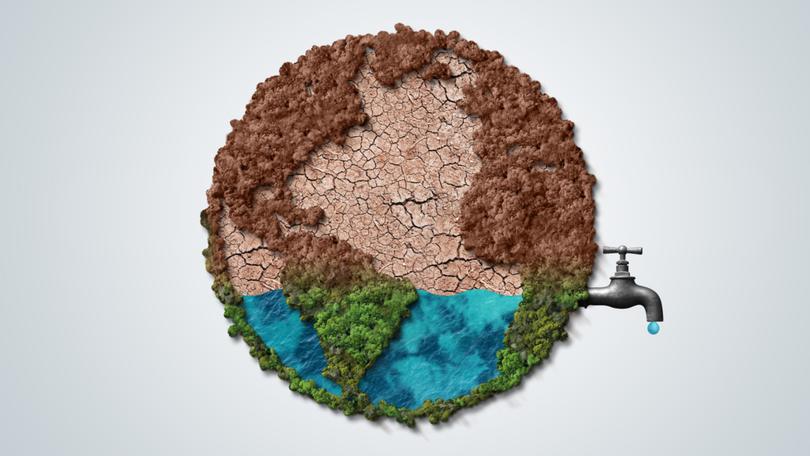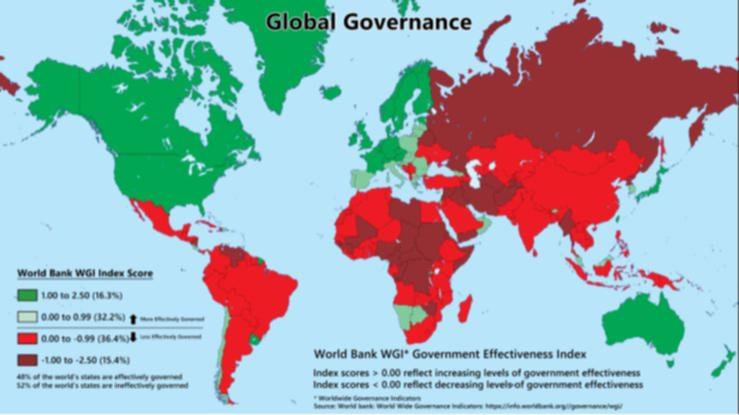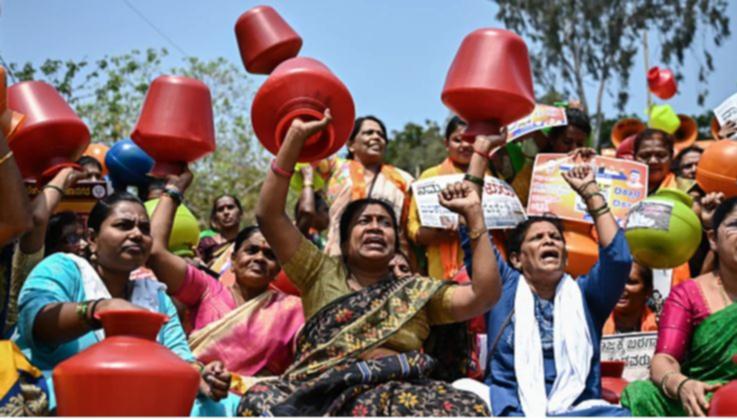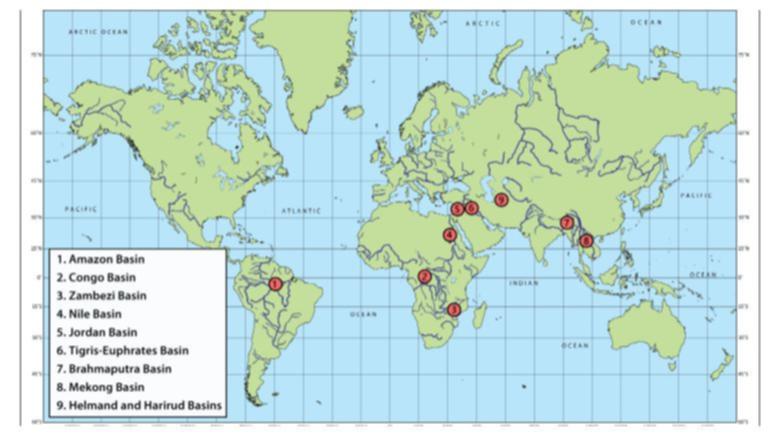CNBC: Water shortages are likely brewing future wars — with several flashpoints across the globe

- The prospect of water wars is a long-running and active debate, with everyone from high-ranking U.N. officials to renowned hydro-politics experts voicing their concern about the perceived risks.
- Growing competition for water in already arid areas, alongside the compounding effect of climate change, has led to a flurry of water-related headlines in recent months.
- Francis Galgano, an associate professor at the Department of Geography and the Environment at Villanova University in Pennsylvania, identified nine international river basins as potential flashpoints.
The diminishing availability of water resources across the globe should be considered one of the most pressing environmental security challenges of the century.
That’s the view of one military geography and environmental security specialist, who recently published a study examining the relationship between water scarcity, geopolitics and the potential for violent conflict in a warming world.
Sign up to The Nightly's newsletters.
Get the first look at the digital newspaper, curated daily stories and breaking headlines delivered to your inbox.
By continuing you agree to our Terms and Privacy Policy.Francis Galgano, an associate professor at the Department of Geography and the Environment at Villanova University in Pennsylvania, said poor governance in acutely vulnerable areas — especially in transboundary river basins — and the deepening climate crisis were two major concerns.
“You’ve got this governance problem and you’ve got this growing effect of aridity and climate change. I think that is the fundamental thing that’s destabilizing our ability to [resolve water conflicts] peacefully and effectively,” Galgano told CNBC via videoconference.
“I really hope that I’m wrong,” he added. “But this is my position and certainly the data seems to bear this out.”

The prospect of water wars is a long-running and active debate, with everyone from high-ranking U.N. officials to renowned hydro-politics experts voicing their concern about the perceived risks.
Others, however, are more sceptical. The Stockholm International Water Institute (SIWI), a non-profit with expertise in water governance, has said that even amid a possible rise in social conflicts and violence, “water can be a bridge to peaceful negotiations rather than a trigger or weapon of war.”
The sustainability of water has become an increasingly urgent global challenge. It is estimated that half of the world’s population already faces severe water scarcity during at least part of the year, while data published last year by the World Resources Institute warned that a staggering $70 trillion — or 31% of global gross domestic product — could be exposed to high water stress by 2050.

Growing competition for water in already arid areas, alongside the compounding effect of climate change, has led to a flurry of water-related headlines in recent months.
Residents of Mexico’s capital city took to the streets in January to protest an “unprecedented” weeks-long water shortage, Iranian authorities warned in June that Tehran and more than 800 towns and villages were at risk from land subsidence and Moody’s Ratings recently said severe water shortages in India could hurt its sovereign credit strength.
The severity of the global water crisis has been further underlined by an alarming rise in the number of security incidents. Data cited by Control Risks in early June found that the average number of monthly water-related security incidents increased by more than 230% between the start of 2019 and May 2024.
The global risk consultancy, which said these incidents included protests and violent unrest linked to water shortages or pollution, warned that this trend was “very unlikely” to slow in the coming months.
Egypt-Ethiopia tensions
Villanova University’s Galgano identified nine international river basins as flashpoints in which conflict is either already taking place or the potential for armed conflict is high.
These included the Nile Basin in Africa, the Tigris-Euphrates River Basins of southwestern Asia and the Helmand and Harirud Rivers along the border of Afghanistan and Iran.
In the Nile Basin, Galgano said riparian countries — which refers to those situated along the river — have so far been unable to come to an agreement over a highly contentious dam, ″and Egypt has officially let it be known that they will go to war.”

Egypt and Ethiopia have been locked in a years-long dispute over the latter’s construction of a $4 billion hydroelectric dam on the Nile’s main tributary.
Egypt fears the Grand Ethiopian Renaissance Dam, or GERD will have a devastating effect on its water and irrigation supply downstream unless Ethiopia takes its needs into account. There are ongoing fears the situation could trigger a full-scale conflict.
“If [GERD] substantially curtails the water flow in Egypt, then that is certainly a flashpoint. They’ve been trying since 2011 to come up with some sort of structured agreement and they still can’t do it. I see that as a real problem,” Galgano said.
Turkey, Syria and Iraq
The Tigris-Euphrates rivers, which follow roughly parallel courses through the heart of the Middle East, were identified as another flashpoint.
Turkish President Recep Tayyip Erdogan “seems to be more entrenched on his sort of insular, nationalist positions on a number of things, so does he make a decision to really tie up the water? And then you’ve got Iraq and Syria really high and dry,” Galgano said.
“You’ve got problems in water coming into the Himalayas, with China — especially western China. I don’t think there’s anyone really there who can really challenge them militarily, but it is a flashpoint that we worry about,” he continued.
“The same with the Brahmaputra River and the Indus River in that area between India, Pakistan and Nepal. Those are all great global flashpoints.”
Amid fears over the prospect of water wars, the United Nations Environment Programme (UNEP) in March published a list of seven things countries and individuals could do to tackle looming water shortages.
These included measures to protect and restore natural spaces, improve water efficiency, tackle water leaks, exploit unconventional water sources such as treating and reusing wastewater and applying integrated approaches in decision-making.
Originally published on CNBC
